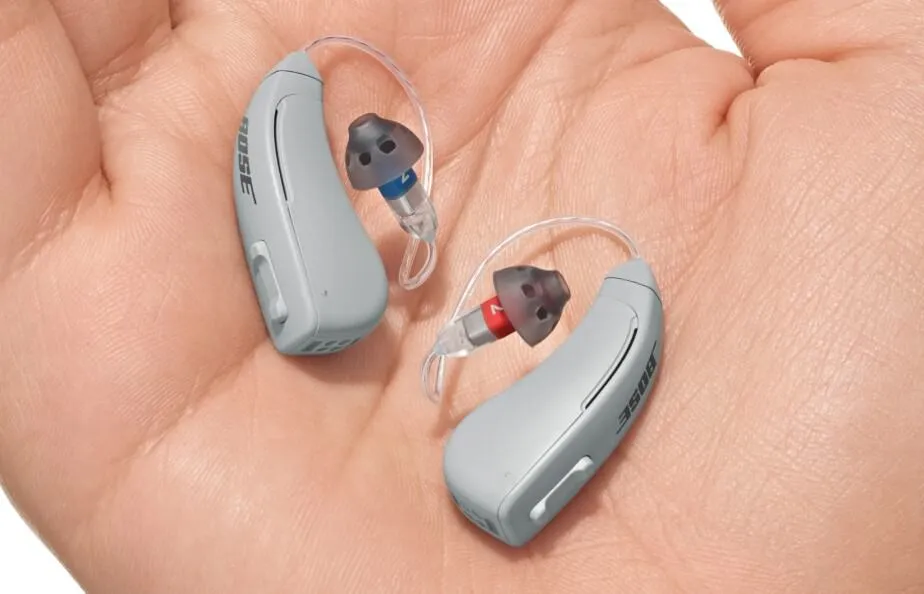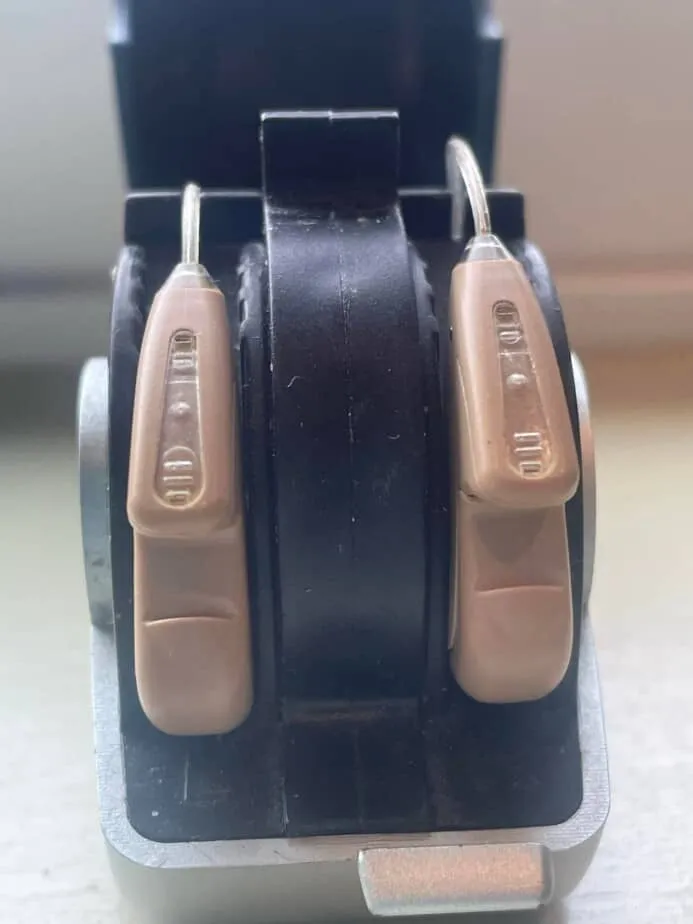Hearing loss is a common issue affecting millions of people worldwide, and hearing aids are a widely-used solution to improve hearing and quality of life. Over-the-Counter (OTC) hearing aids have emerged as a new option for individuals who need a hearing aid but do not have the resources or access to a professional audiologist.
Why Over-the-Counter Hearing Aids?
OTC hearing aids are devices that can be purchased directly by consumers without a prescription from a licensed audiologist. These hearing aids are designed to be affordable, easy to use, and accessible to a larger population, including individuals with mild to moderate hearing loss.
Importance of Over-The-Counter Hearing Aids
Hearing loss can significantly impact an individual’s quality of life, affecting daily activities such as communication, work, and social interactions. OTC hearing aids provide a convenient and cost-effective solution for those who need to improve their hearing but may not have the resources or access to traditional hearing aids. This option helps bridge the gap between people with hearing loss and the resources they need to manage it.

Consult an audiologist or physician if you experience any red flags such as visible ear deformities, recent ear drainage, earwax accumulation, ear pain, dizziness, sudden hearing loss, or unilateral hearing loss. Over-the-counter hearing aids may not improve hearing if these red flags are present and a professional evaluation is necessary. If OTC hearing aids do not improve hearing, prescription hearing aids may be necessary. Consult a hearing care professional who follows best practices to find the right solution.
Advantages of Over-the-Counter Hearing Aids
- Convenience
- Affordability
- Customization options
Over-the-counter (OTC) hearing aids are becoming increasingly popular as a solution for people with mild to moderate hearing loss. Here are the main advantages of OTC hearing aids:
See our review of our number 1 recommended OTC hearing device: The Lexie B2 from Bose.
- Affordability: OTC hearing aids are significantly less expensive than their prescription counterparts, making them a cost-effective option for those with hearing loss.
- Convenience: OTC hearing aids can be purchased without the need for a hearing test or visit to an audiologist. This allows for easy and convenient access to hearing aids for those who live in remote areas or have mobility issues.
- Ease of Use: OTC hearing aids are designed to be simple and user-friendly, allowing for easy set-up and adjustments. Many models feature one-button controls for volume and program changes.
- Discreetness: OTC hearing aids are often smaller and more discreet than prescription hearing aids, making them a good option for those who prefer a more subtle look.
- Customizability: Some OTC hearing aids come with interchangeable earbuds and ear hooks, allowing for a customized fit, you can do this on your own instead of visiting an audiologist.
- Advanced Technology: Many OTC hearing aids feature advanced technology such as noise reduction, directional microphones, and Bluetooth connectivity.
Limitations of Over-the-Counter Hearing Aids
- Limited Adjustability: OTC hearing aids are designed for general use and may not be adjusted for individual hearing needs. This can result in sub-optimal performance and decreased satisfaction.
- No Professional Fitting: OTC hearing aids are not custom fit to the individual user’s ear canal, meaning they may not provide the best possible sound quality or comfort.
- No Professional Support: OTC hearing aids do not come with professional support, making it more difficult to troubleshoot problems or make necessary adjustments.
- May Not Address Complex Hearing Loss: OTC hearing aids are designed for mild to moderate hearing loss and may not be effective for those with more complex hearing issues.
- No Trial Period: Unlike prescription hearing aids, which often come with a trial period, OTC hearing aids are final sale and cannot be returned.
- Limited Warranty: OTC hearing aids typically have a limited warranty, leaving users with limited protection in the event of defects or malfunctions.

How to Choose the Right Over-the-Counter Hearing Aid
For individuals with mild to moderate hearing loss, over-the-counter (OTC) hearing aids can provide a convenient and cost-effective solution. However, with so many options available, choosing the right OTC hearing aid can be overwhelming. Here are some key factors to consider when choosing an OTC hearing aid.
- Type of Hearing Loss: Consider the type and severity of your hearing loss. Some OTC hearing aids are better suited for specific types of hearing loss, such as high-frequency hearing loss, so it’s important to understand your specific needs.
- Comfort and Fit: Choose a hearing aid that is comfortable to wear and fits well in your ear. Consider the size and shape of your ear canal, as well as the type of ear tips offered, to ensure a secure fit.
- Sound Quality: The sound quality of the hearing aid is crucial for effective hearing improvement. Consider the noise reduction and sound amplification capabilities of the device, as well as any customizable sound options.
- Battery Life: Consider the battery life of the hearing aid and the ease of replacing the batteries. Some OTC hearing aids have rechargeable batteries, while others require disposable batteries.
- Connectivity: If you plan to use your hearing aid with a device, such as a smartphone, consider the connectivity options available. Some OTC hearing aids have Bluetooth connectivity, while others do not.
- Ease of Use: Choose a hearing aid that is easy to use and adjust. Consider the control options available, such as volume control or programmable settings.
- Customer Support: Consider the level of customer support offered by the manufacturer, including warranty and return policies, as well as any available instructional materials or support services.
Care and Maintenance of Over-the-Counter Hearing Aids
Over-the-counter (OTC) hearing aids can provide a convenient and cost-effective solution for those with mild to moderate hearing loss, but proper care and maintenance are crucial to ensure their longevity and optimal performance. Here are some tips for caring for your OTC hearing aids.
- Clean Regularly: Clean your hearing aids regularly with a soft, dry cloth to remove any dirt or debris. For more thorough cleaning, use a cleaning tool specifically designed for hearing aids. See how to clean the microphones of the hearing aids.
- Handle with Care: Be gentle when handling your hearing aids to avoid damaging them. Avoid dropping them or exposing them to extreme heat or moisture.
- Change Batteries Regularly: Replace the batteries in your hearing aids as needed to ensure they are functioning properly. Refer to the manufacturer’s instructions for specific battery life and replacement instructions.
- Store Safely: When not in use, store your hearing aids in a dry and secure place to protect them from damage. A protective case is recommended.
- Avoid Exposure to Moisture: Moisture can cause damage to your hearing aids, so avoid exposing them to excessive moisture, such as showering or swimming with them.
- Regular Maintenance: Regular maintenance, such as checking for loose parts or inspecting the ear tips, can help extend the life of your hearing aids.
Repair Options for Over-the-Counter Hearing Aids
Over-the-counter (OTC) hearing aids are a cost-effective and convenient solution for those with mild to moderate hearing loss, but, like any device, they can experience malfunctions or breakage over time. While some repair issues may require professional assistance, there are also some simple steps you can take to troubleshoot and repair your OTC hearing aids.
- Cleaning: One of the most common issues with OTC hearing aids is poor sound quality caused by dirt or debris in the device. Regular cleaning can help prevent this issue, but if it does occur, try cleaning the device thoroughly with a soft, dry cloth. See our guide to cleaning your hearing aid.
- Battery Issues: If your hearing aids are not functioning properly, it may be due to dead batteries. Replace the batteries as instructed in the manufacturer’s instructions. If you have rechargeable see this article.
- Loose Parts: Check for any loose parts or connections, such as ear tips or the battery door, and reattach as necessary.
- Volume Control: If the volume control is not functioning properly, refer to the manufacturer’s instructions for troubleshooting.
- Bluetooth Connectivity: If your hearing aids are not connecting to your device, check the Bluetooth settings on both the hearing aids and the device. Refer to the manufacturer’s instructions for troubleshooting.
- Contact Manufacturer: If your OTC hearing aids are still not functioning properly after trying these steps, contact the manufacturer for assistance. They may offer repair services or recommend a local repair center.
- Professional Repair: In some cases, professional repair may be necessary, especially if the device has been damaged or if the issue cannot be resolved through the cleaning or simple troubleshooting. Find a local audiologist at Ziphearing. Sometimes it may be better to buy a new device vs repair and old device.
Conclusion
In conclusion, over-the-counter hearing aids can be a convenient and cost-effective solution for mild to moderate hearing loss. However, it is important to understand the limitations of these devices and to consult an audiologist or physician if you experience any red flags such as ear pain, sudden hearing loss, or dizziness. The right hearing aid solution will vary based on individual needs and preferences, so it’s crucial to seek the guidance of a professional f needed. Whether you choose an OTC or prescription hearing aid, it’s important to prioritize your hearing health and seek the best possible solution for you.
See the products OTC we currently recommend and also the professionally fit products we recommend.

